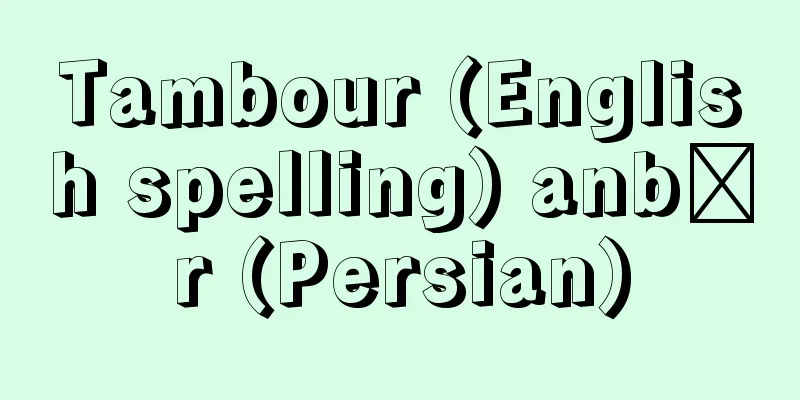Flavius Claudius Julianus

|
Roman Emperor (reigned 361-363). Known as an "apostate." Nephew of Constantine the Great. His father was killed due to a family feud, and he was exiled in Cappadocia with his brother Constantius Gallus (325/326-354) as a child. He received an Arian Christian education, but learned Greek and Latin classics from the eunuch Mardonius at an early age, became familiar with the Greek gods, and was influenced by Neoplatonic philosophy under the tutelage of the rhetorician Libanius (c. 314-c. 393). In 355, he was appointed co-emperor by Constantius II and went to Gaul and Britain, where he showed his talent as a ruler and was loved by his soldiers. When the emperor suddenly ordered him and his legions to fight in the East, the soldiers rebelled and made Julian the emperor. Constantius, who was trying to intercept Julian as he headed East, died suddenly, and he became sole ruler. He immediately abandoned his Christian faith and confessed his faith in Greek and Roman gods, rebuilt the temples of the gods, and ordered the restoration of rituals. Following the example of Christianity, he organized priesthoods at the provincial and urban levels, and had them provide relief for the poor. He did not oppress Christians, but he withdrew state support for Christianity, abolished the privileges of the clergy, and forbade Christian scholars to teach the classics. His general policies were aimed at frugality and reducing the economic burden on the people, and he reduced postal fees and provided support to the upper classes of the cities. However, he was also passionate about consulting oracles and rituals, and in particular performed the ritual of sacrificing a bull to the Eastern sun god Mithras. Due to the need to debate with Christians, he wrote many works in Greek. Among them, the most famous are "Antichristianity", "Misopogon", and "Symposium" in praise of Marcus Aurelius. Many of his letters remain, including one in which he writes about his own upbringing. Soon after he took over, Julian prepared an expedition to suppress the invasion of the Persian Empire in the East, but during his stay in Antioch, the temple of Apollo, which was under construction in Daphne, was burned down, and a famine occurred, leading to criticism from Christians that this was a punishment for their oppression. Nevertheless, in May 363, he set out for the East. The historian Ammianus Marcellinus, who accompanied him at the time, wrote a detailed account of the progress of this expedition. After a difficult march, Julian defeated the Persian army near Ctesiphon, but was prevented from joining up with his allies, and was eventually shot by an arrow and seriously wounded, dying in the camp. Christian historical sources say that as he lay dying, he cried out, "Galilea (Christ), you have won!" Christianity was once again given strong protection by his successor, Flavius Jovianus (reigned 363-364), and his successor, Valentinian I. [Nobuo Matsumoto February 17, 2015] [References] |Source: Shogakukan Encyclopedia Nipponica About Encyclopedia Nipponica Information | Legend |
|
ローマ皇帝(在位361~363)。「背教者」として知られる。コンスタンティヌス大帝の甥(おい)。父は一族内訌(ないこう)のため殺され、幼時は兄ガルスConstantius Gallus(325/326―354)とともにカッパドキアに幽閉された。アリウス派のキリスト教教育を受けたが、早くより宦官(かんがん)マルドニオスMardoniusにギリシア・ラテンの古典を学び、ギリシアの神々に親しみを覚え、また修辞学者リバニオスLibanios(314ころ―393ころ)の教えを受けて新プラトン主義哲学に傾いていった。355年コンスタンティウス2世から副帝に抜擢(ばってき)されてガリア、ブリタニアに赴き、統治者としての才能を発揮、兵士にも慕われた。皇帝が突然、彼とその軍団とに東方への転戦を命じるや、兵士はこれに反抗してユリアヌスを皇帝に推戴(すいたい)した。東方に向かったユリアヌスを迎撃しようとしたコンスタンティウスが急死して、彼は単独支配者となった。彼はただちにキリスト教信仰を捨てて、ギリシア・ローマ神への信仰を告白し、神々の神殿を再建し、祭儀の復興を命じた。キリスト教に倣って祭司団を属州・都市単位に組織化し、貧民救済をも行わせた。キリスト教徒を弾圧することはしなかったが、国家によるキリスト教への援助を取りやめ、聖職者の特権を廃止し、教徒の学者が古典を教えることを禁じた。一般政策では節倹と国民の経済的負担減少を旨とし、駅逓(えきてい)負担金を減らし、都市上層民を援助した。しかし神託伺いと祭儀には自ら熱中し、ことに東方系の太陽神ミトラス神への牡牛(おうし)のいけにえの儀式を盛んに行うなどの一面があった。キリスト教徒との論争の必要からギリシア語で数多くの著述を残した。そのなかでは、『反キリスト教論』、『ミソポゴン』、マルクス・アウレリウスをたたえた『饗宴(きょうえん)』が有名で、書簡も多数現存し、自分自身の生い立ちを綴(つづ)ったものもある。 統治後まもなく、東方のペルシア帝国の侵入を抑えるための遠征を準備したが、おりしもアンティオキア滞在中、ダフネに建設中のアポロン神殿が焼失し、飢饉(ききん)も生じて、キリスト教徒からは圧迫の罰だとする非難の声があがった。しかし363年5月、東方に進発。このとき従軍した歴史家アンミアヌス・マルケリヌスが、この遠征の経過を詳細に記している。ユリアヌスは困難な行軍ののち、クテシフォン近郊でペルシア軍を一時は破るが、そのあと友軍との合流を妨げられ、ついに矢を射られて重傷を負い、陣中で没した。死に臨んで「ガリラヤ人(キリストのこと)よ、お前の勝ちだ」と叫んだとキリスト教史料は伝えている。帝位を継いだヨウィアヌスFlavius Jovianus(在位363~364)、次のウァレンティニアヌス1世によって、キリスト教はふたたび手厚い保護を与えられることになった。 [松本宣郎 2015年2月17日] [参照項目] |出典 小学館 日本大百科全書(ニッポニカ)日本大百科全書(ニッポニカ)について 情報 | 凡例 |
Recommend
Procapra gutturosa (English spelling) Procapragutturosa
...Most of them are sandy-colored and distributed...
Spiracle - Kimon
A hole that opens on the surface of the body of a...
Hallé, A.
...The discovery of X-rays by Roentgen in 1895 br...
Miki [town] - Miki
A town in Kida County in central Kagawa Prefecture...
German Revolution - Doi Tsukakumei (English spelling) Deutsche Revolution German
A revolution that took place in November 1918 in ...
Berliner, HA (English spelling) BerlinerHA
…In 1987, he invented the phonograph (later the g...
Cutting edge
〘Noun〙① The metal catch of the habaki of a sword b...
Lacrosse - Lacrosse (English spelling)
A ball game originating from a game called Bagata...
Poisson - Poason (English spelling) Siméon-Denis Poisson
French mathematician and physicist. Born in Pithi...
Urea - Urea
A compound equivalent to the diamide of carbonic ...
Bogor - Bogor (English spelling)
A city in the west of Java, Indonesia. It is loca...
English calendar - English calendar
...Used for various astronomical observations, as...
Emecheta, B. (English spelling) EmechetaB
…However, the movement to redefine popular histor...
Kalinin, Mikhail Ivanovich
Born: 7/19/1875, Verkhnyayatroitsa, Tver Died June...
Water civet (water musk cat)
Also known as the cynogale. An aquatic mammal of t...









